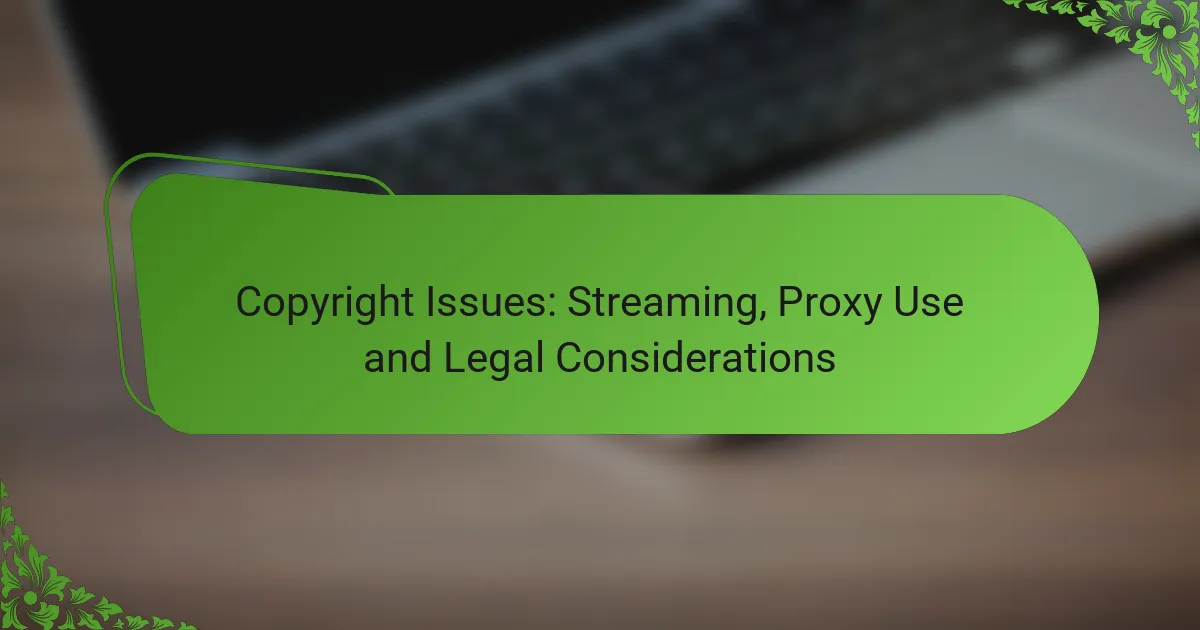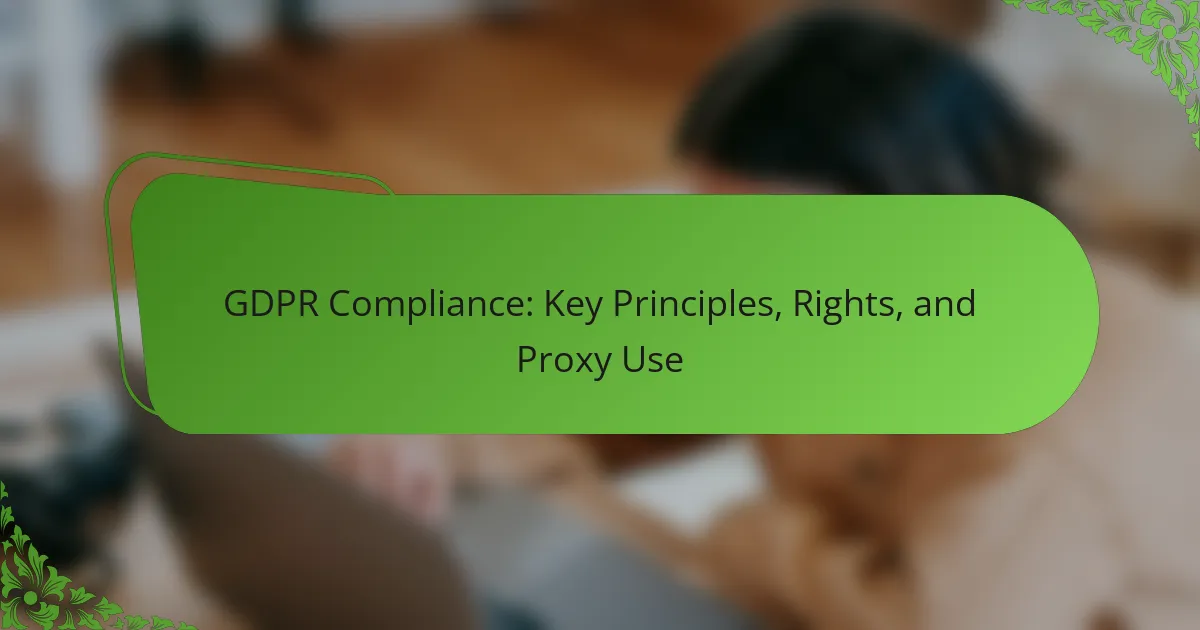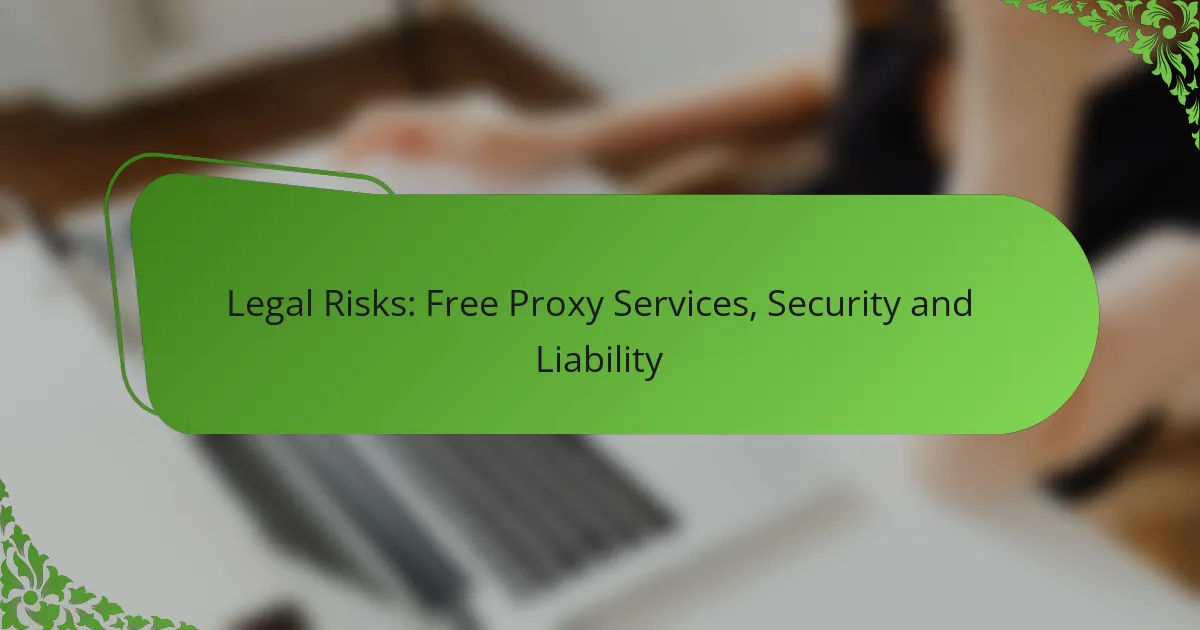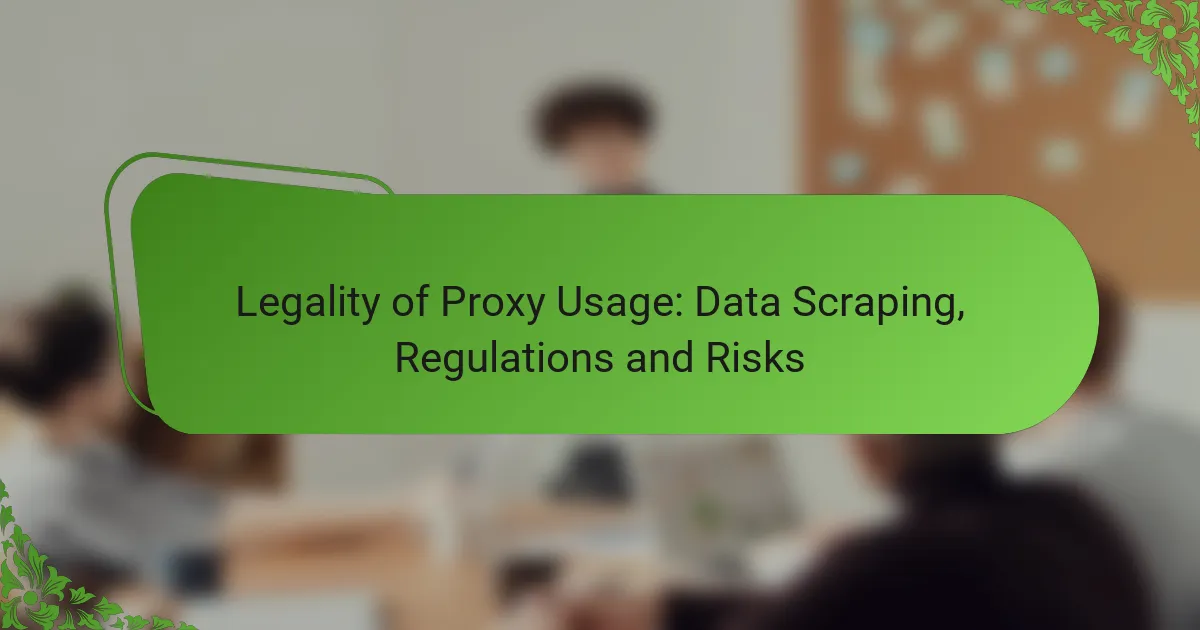Copyright issues in streaming are increasingly complex, involving unauthorized content distribution, licensing agreements, and user-generated content. The use of VPNs and proxies can further complicate compliance, as they may enable access to restricted content but also pose legal risks for users. For streaming services, understanding and addressing these legal considerations is essential to avoid disputes and operate within the law.
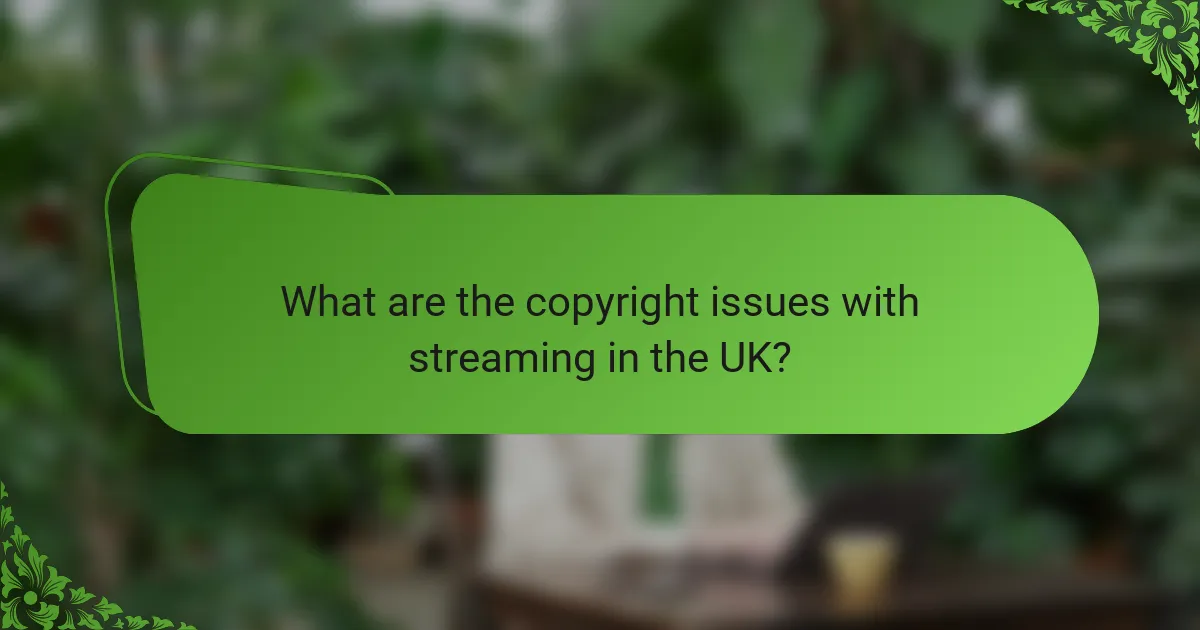
What are the copyright issues with streaming in the UK?
In the UK, copyright issues with streaming primarily revolve around unauthorized content distribution, licensing agreements, and the implications of user-generated content. Understanding these aspects is crucial for both content creators and consumers to navigate the legal landscape effectively.
Unauthorized content distribution
Unauthorized content distribution occurs when copyrighted material is streamed without the permission of the rights holder. This can include streaming movies, music, or live events without proper licensing, which is illegal under UK copyright law.
Individuals and platforms that engage in unauthorized streaming risk facing legal action, including fines and potential criminal charges. Users should be cautious and ensure that the content they access is legally available to avoid these consequences.
Licensing agreements
Licensing agreements are contracts that grant permission to use copyrighted material. In the UK, streaming services must secure licenses from copyright holders to legally distribute content. These agreements often involve fees that reflect the value of the content being streamed.
For example, a streaming platform might pay a flat fee or a percentage of revenue based on the number of views. Understanding the terms of these agreements is essential for both service providers and content creators to ensure compliance with copyright laws.
Impact of user-generated content
User-generated content (UGC) can complicate copyright issues, as it often involves the use of copyrighted material without permission. In the UK, platforms hosting UGC may be held liable if they do not take steps to remove infringing content when notified.
Creators should be aware that using copyrighted music or video clips in their content can lead to copyright infringement claims. To mitigate risks, it is advisable to use royalty-free or licensed materials and to understand the platform’s policies regarding UGC and copyright enforcement.
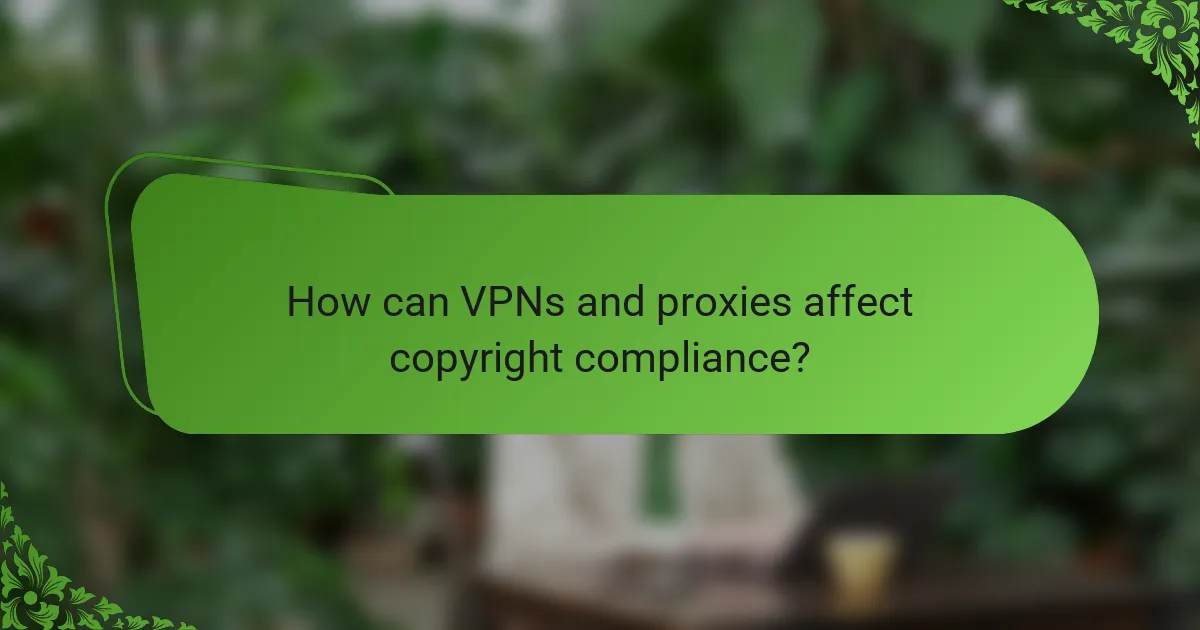
How can VPNs and proxies affect copyright compliance?
VPNs and proxies can complicate copyright compliance by allowing users to access content that may be restricted in their region. While they provide anonymity and bypass geo-restrictions, using these tools can expose users to legal risks if they access copyrighted material without permission.
Bypassing geo-restrictions
VPNs and proxies enable users to bypass geo-restrictions by masking their IP addresses and making it appear as though they are accessing the internet from a different location. This allows access to streaming services or content that may not be available in their home country.
For example, a user in the United States might use a VPN to access a European streaming service that offers exclusive shows. However, this practice can violate the terms of service of the content provider and potentially infringe on copyright laws.
Legal risks of using proxies
Using proxies to access copyrighted content can expose users to various legal risks, including copyright infringement claims. Many countries have strict laws against unauthorized access to copyrighted material, and users may face fines or other penalties.
In some cases, content providers actively monitor proxy usage and may take legal action against users who violate their terms. It’s crucial for users to understand the legal implications of their actions when using these tools.
Repercussions for users
The repercussions for users who violate copyright laws through VPNs or proxies can be significant. Users may face account suspension from streaming services, legal notices, or even lawsuits from copyright holders.
To mitigate these risks, users should consider the legality of the content they wish to access and the terms of service of the platforms they use. Staying informed about local copyright laws can help users navigate the complexities of streaming and proxy use responsibly.
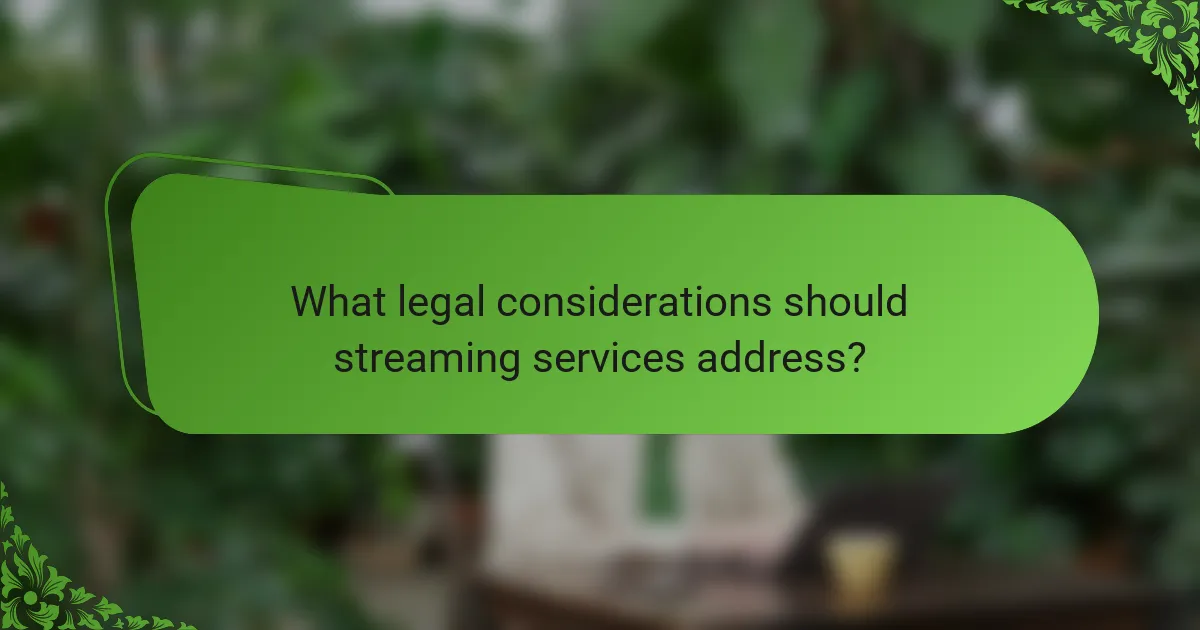
What legal considerations should streaming services address?
Streaming services must navigate various legal considerations, including compliance with terms of service, copyright infringement liability, and content licensing requirements. Addressing these issues is crucial to avoid legal disputes and ensure the platform operates within the law.
Terms of service compliance
Compliance with terms of service is essential for streaming services to maintain user trust and avoid legal repercussions. These terms outline the rights and responsibilities of both the service provider and users, including acceptable usage policies and limitations on content sharing.
Streaming platforms should regularly review and update their terms of service to reflect changes in laws and regulations. Clear communication of these terms to users can prevent misunderstandings and potential legal issues.
Copyright infringement liability
Streaming services can face significant liability for copyright infringement if they host or distribute copyrighted content without proper authorization. This liability may result in costly lawsuits and damage to the service’s reputation.
To mitigate this risk, services should implement robust content management systems that monitor and manage copyrighted materials. Establishing a clear process for handling copyright complaints can also help in addressing issues promptly and effectively.
Content licensing requirements
Content licensing is a fundamental aspect of operating a streaming service legally. Services must secure licenses from copyright holders to distribute their content, which can involve negotiations and fees that vary widely based on the type of content and its popularity.
Streaming platforms should conduct thorough research to understand the licensing landscape for their specific content offerings. Engaging legal experts in copyright law can aid in navigating these requirements and ensuring compliance with local regulations, which may differ significantly across regions.
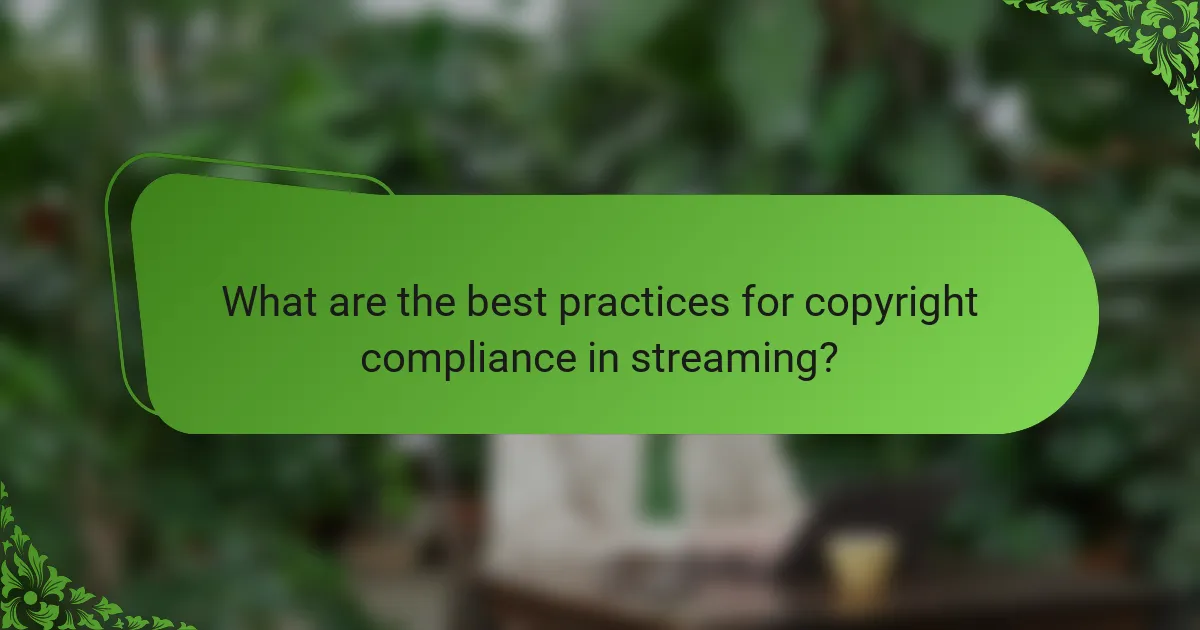
What are the best practices for copyright compliance in streaming?
Best practices for copyright compliance in streaming involve implementing proactive measures to monitor content, establishing clear user guidelines, and conducting regular legal audits. These steps help ensure that streaming services respect intellectual property rights while providing a safe environment for users.
Implementing content monitoring
Content monitoring is essential for identifying copyrighted materials that may be used without permission. This can include automated systems that scan uploaded content against a database of copyrighted works. Regularly updating these databases and using advanced algorithms can enhance the accuracy of detection.
Consider using tools that provide real-time alerts when copyrighted content is detected. This allows for immediate action, such as removing infringing content or notifying users about potential violations. Establishing a clear process for handling such incidents is crucial to maintaining compliance.
Establishing clear user guidelines
Clear user guidelines help set expectations for acceptable content usage on your streaming platform. These guidelines should outline what constitutes copyright infringement and the consequences for violations. Providing examples of acceptable and unacceptable content can further clarify these rules.
Encourage users to respect copyright by offering educational resources about intellectual property rights. This not only fosters a culture of compliance but also reduces the likelihood of unintentional infringements on your platform.
Regular legal audits
Conducting regular legal audits is vital for ensuring ongoing compliance with copyright laws. These audits should assess your content library, user-generated content, and licensing agreements to identify any potential risks. Engaging legal experts can provide valuable insights into current regulations and best practices.
Consider scheduling audits at least annually or whenever significant changes occur in your content offerings. This proactive approach helps mitigate legal risks and reinforces your commitment to copyright compliance.
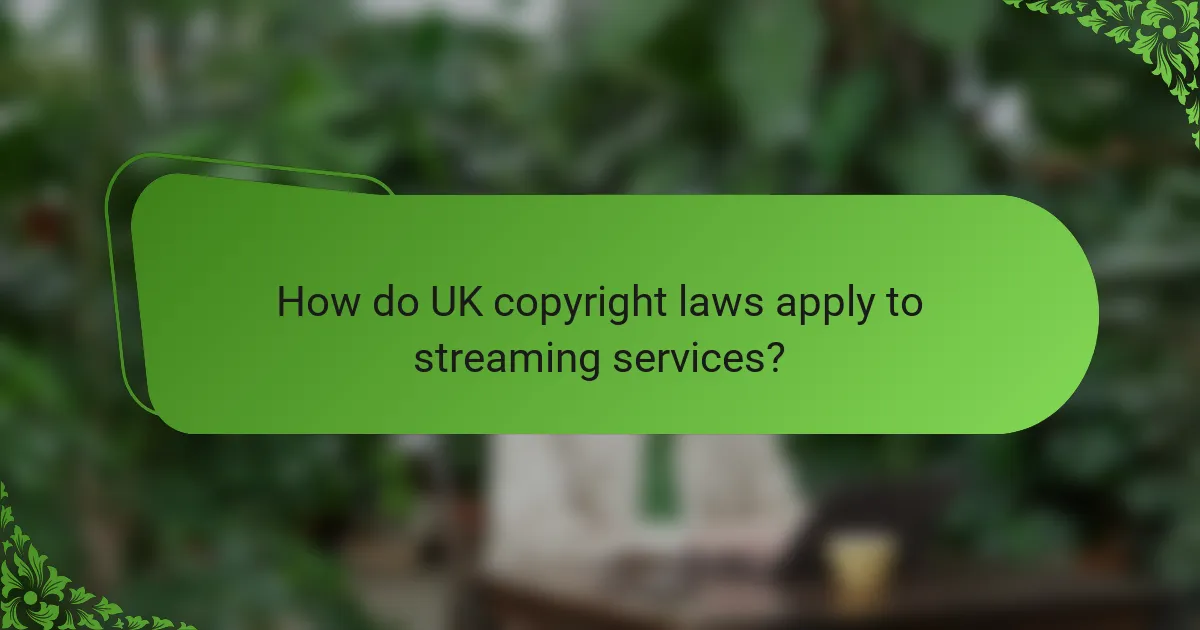
How do UK copyright laws apply to streaming services?
UK copyright laws significantly impact streaming services by regulating the use and distribution of copyrighted content. These laws ensure that creators are compensated for their work while also outlining the responsibilities of streaming platforms regarding licensing and user access.
Copyright, Designs and Patents Act 1988
The Copyright, Designs and Patents Act 1988 is the primary legislation governing copyright in the UK. It grants creators exclusive rights to their works, including music, films, and software, and establishes penalties for unauthorized use. Streaming services must obtain licenses for any copyrighted material they offer to avoid infringement.
Under this act, streaming platforms are responsible for ensuring that the content they provide is legally licensed. This includes not only the initial acquisition of rights but also ongoing compliance with licensing terms, which can vary by content type and creator.
Digital Economy Act 2010
The Digital Economy Act 2010 introduced measures to combat online copyright infringement and improve the enforcement of copyright laws. It empowers rights holders to take action against illegal streaming and file-sharing activities. This act also includes provisions for the regulation of internet service providers (ISPs) in relation to copyright enforcement.
Streaming services must be aware of the implications of this act, as it can lead to increased scrutiny and potential penalties for non-compliance. Rights holders can request that ISPs take action against users who infringe copyright, which can affect the user base of streaming platforms.
Recent case law impacts
Recent case law in the UK has clarified the responsibilities of streaming services concerning copyright. Courts have ruled on various issues, such as the liability of platforms for user-generated content and the extent of their obligation to monitor for infringement. Such rulings can influence how streaming services operate and manage their content libraries.
For example, a notable case highlighted that streaming platforms could be held liable for hosting infringing content if they fail to act upon knowledge of such content. This underscores the importance of proactive monitoring and compliance measures for streaming services to mitigate legal risks.
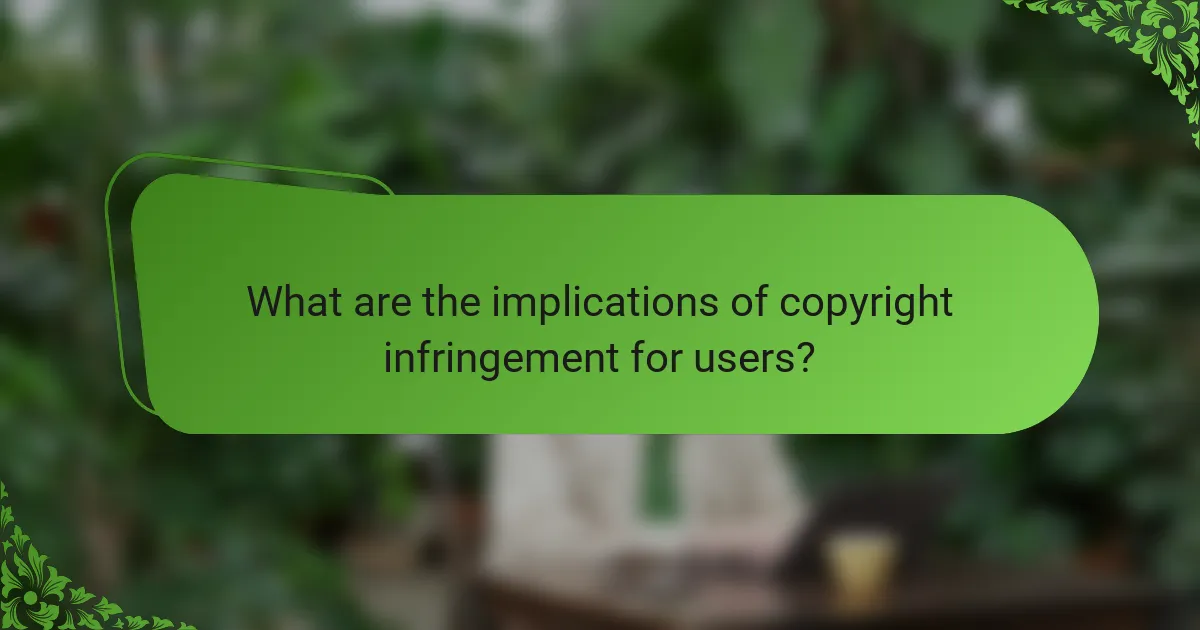
What are the implications of copyright infringement for users?
Copyright infringement can lead to serious consequences for users, including financial penalties, account suspensions, and potential legal action from content owners. Understanding these implications is crucial for anyone engaging with streaming services or using proxies to access content.
Potential fines and penalties
Users caught infringing copyright may face fines that vary widely depending on the severity of the violation and local laws. In some cases, penalties can range from hundreds to thousands of dollars. Repeat offenders often face steeper fines, emphasizing the importance of adhering to copyright regulations.
In the United States, for example, statutory damages for copyright infringement can reach up to $150,000 per work if the infringement is found to be willful. This starkly illustrates the financial risks involved in unauthorized streaming or downloading.
Account suspension risks
Streaming platforms often have strict policies against copyright infringement, which can lead to account suspensions or bans. Users may find their access revoked without warning, especially if they are reported for sharing or accessing pirated content.
To mitigate this risk, users should familiarize themselves with the terms of service of their streaming platforms and avoid using proxies or other methods to bypass content restrictions. Staying compliant with these guidelines helps ensure uninterrupted access to services.
Legal action from content owners
Content owners actively monitor for copyright violations and may pursue legal action against infringers. This can include sending cease-and-desist letters or filing lawsuits, which can result in costly legal fees and settlements.
Users should be aware that even if they believe they are using a proxy or VPN to remain anonymous, their activities can still be traced. Engaging with copyrighted material without permission poses significant legal risks that can have long-lasting consequences.






